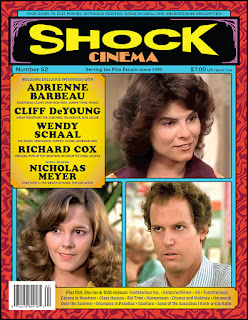V2.26
While most of the early ‘90s pop culture world was mesmerized by the sounds emanating from the unlikely rock ‘n’ roll nexus of Seattle, another musical revolution was quietly taking shape in the American heartland. While Northwestern artists like Nirvana and Pearl Jam were fusing punk, heavy metal and hard rock into the sound that came to be termed as “grunge,” Uncle Tupelo – hailing from Belleville, Illinois – were blazing trails of their own. Featuring two extremely talented songwriters in the persons of Jay Farrar and Jeff Tweedy, Uncle Tupelo’s 1990 debut album, No Depression, would become a touchstone of the alternative country movement.
No Depression, named for an ancient Carter Family gospel tune, would spawn an AOL newsgroup and a magazine of the same name, both dedicated to the fledgling alternative sound known as “insurgent country” or “no depression” music. Over the course of four albums, Uncle Tupelo would build a fanatically loyal following with their blend of traditional country twang, punk fury and roots rock. Although not the first band to walk that path, they took the musical hybrid to the next level, inspiring a generation of bands like Slobberbone, Whiskeytown, the Old 97s and others that would follow. When lifelong friends Farrar and Tweedy became estranged after the 1993 release of Anodyne, the band’s fourth album, Uncle Tupelo split into two factions – Farrar forming Son Volt and Tweedy taking the remaining band members and forming Wilco.
For such an influential, original and groundbreaking band as Uncle Tupelo, their recorded catalog has been in disarray for years. With the recent release of 89/93: An Anthology (Legacy Recordings), the process has begun to restore the catalog to the level of importance it deserves. With 21 songs culled from the band’s too-short lifespan, this collection serves as a fine introduction to the special magic that was Uncle Tupelo. Kicking off, appropriately enough, with “No Depression,” the anthology runs roughly in chronological order, offering album tracks, rare B-sides, unreleased songs and live performances that should thrill even the most hardcore fan. Tweedy and Farrar often walked a creative tightrope, the tension between their rock roots and country aspirations evident in original songs like “Graveyard Shift,” “Grindstone” and “Chickamauga.” The pair sung of working class blues, drunken regrets, heartbreak and crappy jobs with a passion and energy that connected with audiences across the musical spectrum. After 89/93: An Anthology, Legacy Recordings will also reissue the band’s first three indie albums, remastered with bonus tracks and other goodies. One of a handful of great American bands, Uncle Tupelo deserves every accolade that’s been thrown at them.
Formed back in the mid-‘80s as a creative outlet for musician/composer Sam Rosenthal’s electronic art, Projekt Records has since taken on a life of its own. Mostly due to Rosenthal’s critically acclaimed band Black Tape For A Blue Girl, Projekt has attracted a loyal following of listeners who enjoy the label’s trademark mix of ambient soundscapes, electronic experimentation and Goth-influenced rock from artists like Voltaire, Steve Roach, and Human Drama. Over the course of close to a dozen albums, Black Tape For A Blue Girl has become the label’s flagship band; a status reinforced by the recent release of The Scavenger Bride (Projekt Records), Rosenthal’s and Black Tape’s most ambitious effort to date.
Rosenthal finds his lyrical inspiration in a number of places, from film and literature, writers like Franz Kafka and the ancient composers who have inspired the artist’s electronic fascinations. Much like previous Black Tape For A Blue Girl albums, The Scavenger Bride is a multi-textured portrait in sound, each individual song the canvas upon which Rosenthal and musicians Lisa Feuer, Julia Kent, Vicki Richards and Elysabeth Grant layer their instrumental colors. The resulting songs are often breathtaking, Rosenthal’s deep voice matched by Grant’s ethereal vocal styling. The instrumentation on songs like “Kinski,” “The Scavenger Bride” or “Bastille Day 1961” is simply mesmerizing, deceptively quiet and subconsciously soothing. A modern day composer without peer, Sam Rosenthal continues to amaze, creating a new classical music with Black Tape For A Blue Girl. Unlike any other album you’re likely to hear this year, it’s well worth seeking out The Scavenger Bride among the usual dreck at your favorite music store.
So you’re a movie nut, a film fanatic, an honest-to-god fanboy (or fangirl) who watches the big screen to see thrilling special effects, violent fight scenes and stuff blowing up rather than to analyze a character’s motivation or the director’s obsessions. You already know that your tastes are ill served by the mainstream press – forget about checking out the latest issue of Premiere or Entertainment Weekly for the kind of meat and potatoes film coverage that you crave. For insightful interviews and lively movie reviews, look no further than Steve Puchalski’s Shock Cinema.
A movie zine with more character than a roomful of studio executives, Shock Cinema is a true labor of love by a crew of dedicated film fans. Issue #20 includes interviews with actors Michael Moriarty (best-known for his early stint on Law & Order), Joseph Turkel and Keith David, filmmaker Lee Frost and screenwriter W.D. Richter. Puchalski and his volunteer staff review dozens of movies in every issue, ranging from the sixties to the present. Past issues have featured interviews with cult heroes like Fred Williamson, James Remar, Russ Meyer and William Smith. For readers wanting a critical perspective well removed from the corporate entertainment press, as well as a healthy dose of B-movie history, Shock Cinema is the place to go. (View From The Hill, May 2002)



No comments:
Post a Comment